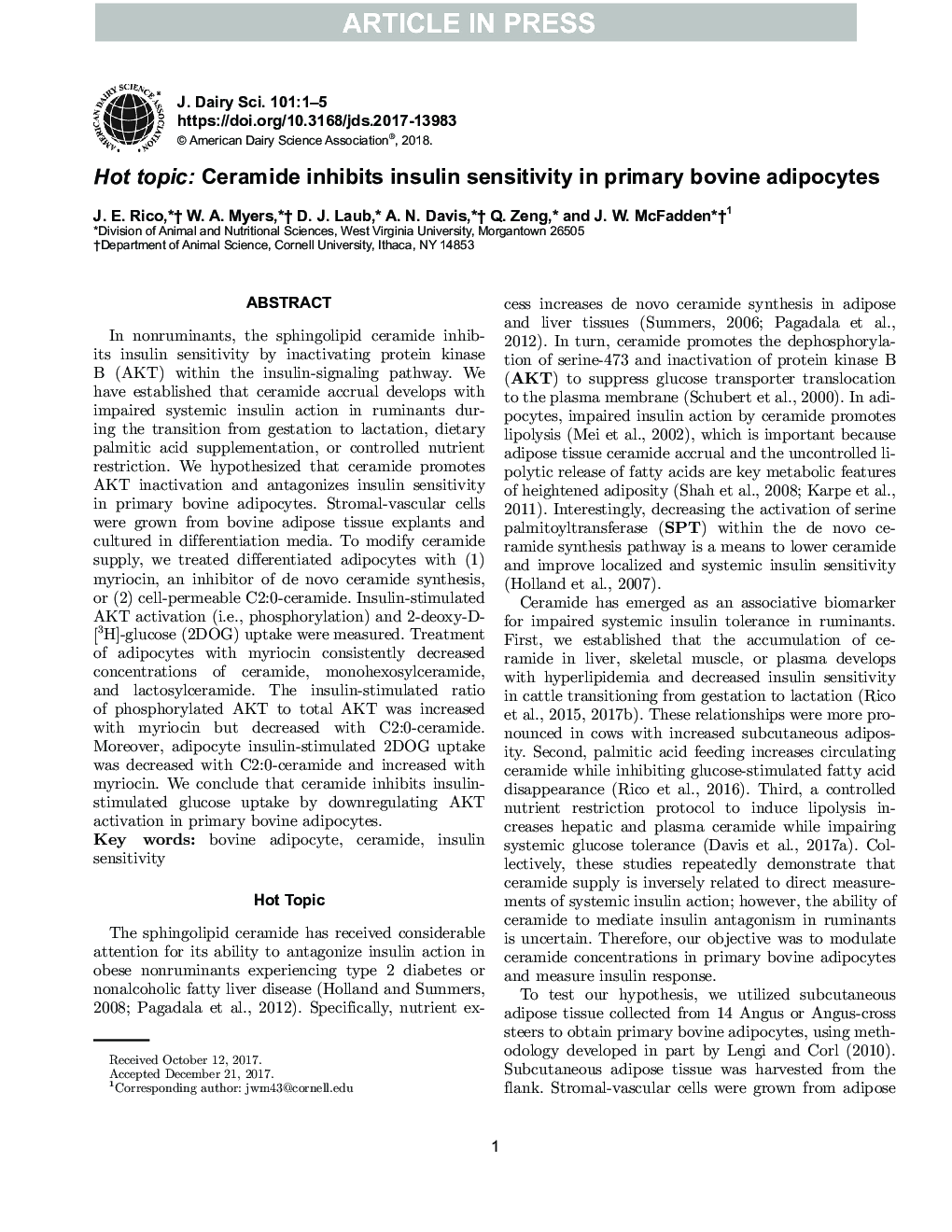| Article ID | Journal | Published Year | Pages | File Type |
|---|---|---|---|---|
| 8501463 | Journal of Dairy Science | 2018 | 5 Pages |
Abstract
In nonruminants, the sphingolipid ceramide inhibits insulin sensitivity by inactivating protein kinase B (AKT) within the insulin-signaling pathway. We have established that ceramide accrual develops with impaired systemic insulin action in ruminants during the transition from gestation to lactation, dietary palmitic acid supplementation, or controlled nutrient restriction. We hypothesized that ceramide promotes AKT inactivation and antagonizes insulin sensitivity in primary bovine adipocytes. Stromal-vascular cells were grown from bovine adipose tissue explants and cultured in differentiation media. To modify ceramide supply, we treated differentiated adipocytes with (1) myriocin, an inhibitor of de novo ceramide synthesis, or (2) cell-permeable C2:0-ceramide. Insulin-stimulated AKT activation (i.e., phosphorylation) and 2-deoxy-D-[3H]-glucose (2DOG) uptake were measured. Treatment of adipocytes with myriocin consistently decreased concentrations of ceramide, monohexosylceramide, and lactosylceramide. The insulin-stimulated ratio of phosphorylated AKT to total AKT was increased with myriocin but decreased with C2:0-ceramide. Moreover, adipocyte insulin-stimulated 2DOG uptake was decreased with C2:0-ceramide and increased with myriocin. We conclude that ceramide inhibits insulin-stimulated glucose uptake by downregulating AKT activation in primary bovine adipocytes.
Keywords
Related Topics
Life Sciences
Agricultural and Biological Sciences
Animal Science and Zoology
Authors
J.E. Rico, W.A. Myers, D.J. Laub, A.N. Davis, Q. Zeng, J.W. McFadden,
